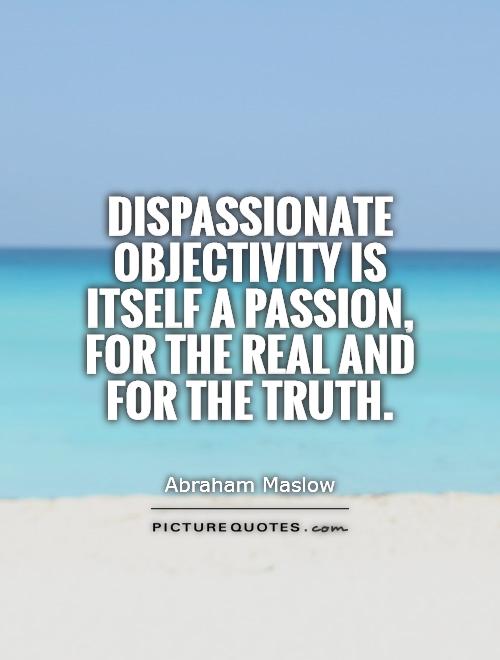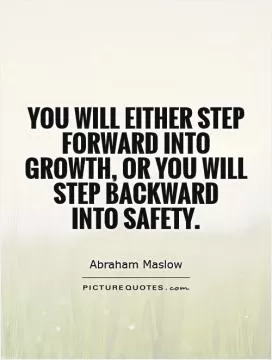Dispassionate objectivity is itself a passion, for the real and for the truth

Dispassionate objectivity is itself a passion, for the real and for the truth
Abraham Maslow, a renowned psychologist known for his hierarchy of needs theory, believed in the importance of dispassionate objectivity in the pursuit of truth and understanding. Maslow argued that true objectivity requires a passion for seeking the real and the truth, as it involves setting aside personal biases and emotions in order to see things as they truly are.Maslow believed that in order to truly understand human behavior and motivations, one must approach the study of psychology with a sense of dispassionate objectivity. This means being able to set aside personal beliefs, prejudices, and emotions in order to objectively observe and analyze human behavior. By doing so, Maslow believed that psychologists could gain a deeper understanding of the underlying motivations and drives that influence human behavior.
In Maslow's view, dispassionate objectivity is not a cold or detached way of approaching the world, but rather a passionate commitment to seeking the truth and understanding the complexities of human nature. By being able to set aside personal biases and emotions, psychologists can more effectively uncover the underlying truths that govern human behavior.
Maslow's emphasis on dispassionate objectivity can be seen in his approach to studying human motivation. Maslow's hierarchy of needs theory posits that individuals are motivated by a hierarchy of needs, ranging from basic physiological needs such as food and shelter to higher-level needs such as self-actualization and self-transcendence. By approaching the study of motivation with a sense of dispassionate objectivity, Maslow was able to uncover the underlying motivations that drive human behavior and ultimately develop his groundbreaking theory of human motivation.












 Friendship Quotes
Friendship Quotes Love Quotes
Love Quotes Life Quotes
Life Quotes Funny Quotes
Funny Quotes Motivational Quotes
Motivational Quotes Inspirational Quotes
Inspirational Quotes